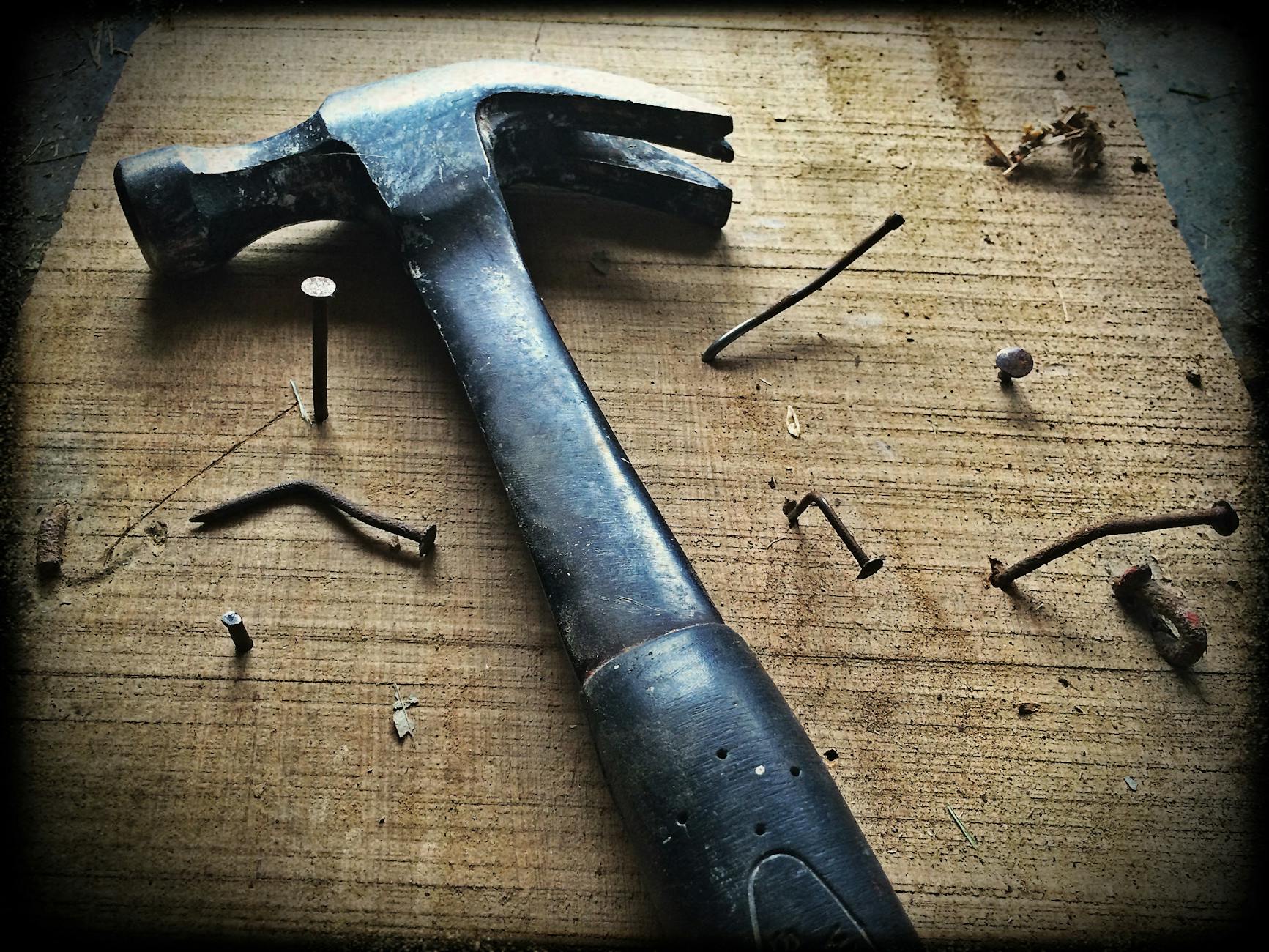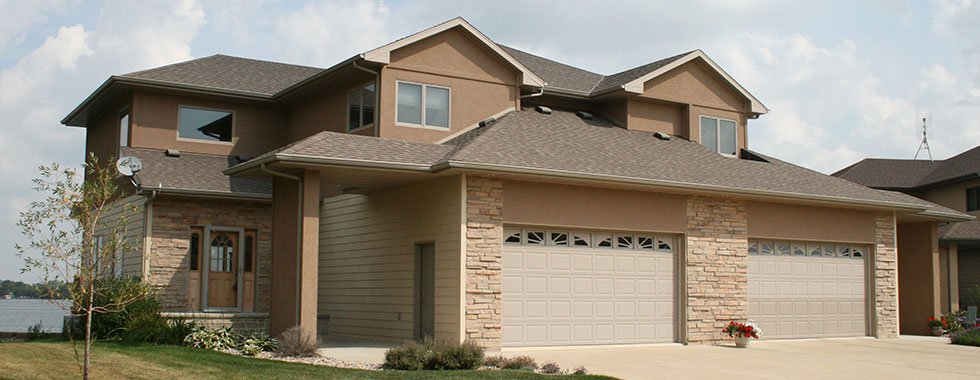
Image by Jimmy Chan
Looking to sell a property damaged by termites? We purchase homes in any condition (yes, including termite issues). Get a no-obligation CASH offer by completing the form below!
Detecting Termite Problems
To prevent costly structural restorations due to termites, early identification is crucial.
But, termites can be elusive, rarely leaving their concealed tunnels in soil and wood. Regular termite checks can be a worthwhile measure.
Evidence of Termite Swarmers
If you notice any of these signs of termites when you check your home, it’s important to take quick action to get rid of them:
When adult termites with wings, also known as termite swarmers, fly away to create their colonies, they often leave behind discarded wings or dead swarmers on the floors or windowsills of your house.
Unfortunately, seeing these winged termites means there is a big colony of termites under your property. It’s crucial to promptly contact a pest control service to inspect and treat your house.
Mud Tunnels Ascending the House
Mud tunnels scaling up from the crawl space or along external walls usually mean an active infestation. To confirm, break a 1-inch segment of the mud tube and monitor if it’s repaired in the next few days. If repaired, the infestation is active.
Mud tunnels reaching into ceilings, soffits, and fascia boards suggest Formosan termite colonies, also known as “super termites“, the most aggressive species.
In all cases, promptly arrange professional extermination for termite removal.
Visible Termite Damage
Signs like sagging laminate floors, sagging ceilings, termite-eaten wood filled with dried mud, and broken door frames are common indicators of extensive damage caused by termites. Often, severe termite issues may lurk behind wallpaper or under loose floor tiles.
Promptly get a professional involved to mitigate further damage.
Contributors to Termite Infestations
Local Weather and Moisture
Florida and Georgia bear the highest risk of termite damage due to their hot and wet climates, ideal for termites. If you reside in these states, be proactive in preventing a termite invasion.
Water damage is a homeowner’s nightmare. It may lead to a host of issues like mold, structural warping, and yes, termites.
Cracks in the Foundation
The area beneath your home’s foundation, being dark and damp, attracts subterranean termites. If there are cracks and gaps, termites can use these flaws to build mud tubes and invade your home.
Moreover, external cracks, particularly around doors and windows, may allow termite swarms access. External vents can also provide an entry point for termites.
Regular checks can help identify and repair these cracks early, helping to prevent a full-scale infestation.
Untreated Wood Touching the House
Termites are drawn to wood, more specifically, the cellulose it contains. Wood leaning against your house walls can attract termites, who will likely move into your home after consuming it. This puts your beams, columns, furniture, floors, and ceilings at risk.
Lack of Regular Inspections
Without expert knowledge, it’s easy to overlook the early signs of a termite issue. Hence, regular pest inspections can be beneficial for early termite treatments before a colony takes hold.
Is Selling a Termite-Infested House Possible?
Yes, selling a house with termites is possible.
It may feel like your buyer pool is limited, and while it can be challenging, selling a property with extensive termite damage isn’t impossible.
Evaluating a Termite Damaged House Sale
Deciding between the options depends on time, effort, and finances.
If termite-inflicted damage is manageable and won’t excessively consume time and money, you could opt to undertake repairs before putting the house on the market.
On the other hand, if the termite devastation is extensive, hiring a contractor to supervise the repairs and restoration could be an option, provided you have the energy. Despite taking more time and requiring a larger budget, the potential sale price could justify these costs.
Time becomes a challenge if financial resources for treatment and repair are limited. Without action, termite issues could worsen over time.
To sell your house quickly, the safest bet is selling to a real estate investor for cash. This approach allows you to bypass termite removal and repair hassles, facilitating a quicker return to normal life.
Options for Selling a Home with Termite Issues
When selling a house with termite history in Nashville, you have two paths: remedy the current issues, handle the repairs, then list your home on the open market; or sell the property as-is to an investor.
Option #1: Repair, Remediate, then Sell with a Termite Warranty [Selling a House with Termite History in Nashville]
In a traditional home sale, a buyer intending to inhabit the purchased home would likely prefer a move-in-ready property.
If you’re planning to sell to this type of buyer, either through For Sale by Owner (FSBO) or via an agent using the Multiple Listing Service (MLS), it would be advantageous to resolve all issues before listing.
Buying a property with previous termite issues can be daunting for potential buyers, but you can ease their concerns by doing the following:
Conduct a Termite Inspection and Treatment

Image by RDNE Stock project
Arrange for a home inspection to gain an understanding of your property’s condition before listing it on the market.
Act on the inspector’s advice regarding the necessary treatment to put yourself in a stronger selling position.
Repair and Rehabilitate the Property

Image by Pixabay
After successfully removing termites and other pests, it’s time to address the damage they left behind.
If wooden frame members are significantly damaged, you can replace them entirely or choose a cheaper option and reinforce the termite-damaged wood. When replacing frame members, consider using termite-resistant materials such as steel, treated timbers, or fiber-reinforced concrete.
After all repairs are complete schedule a second termite inspection and obtain a written report from the pest expert. A report showing your house is termite-free can significantly aid in negotiating the best-selling price.
Disclose All Known Issues, Past and Present

Image by Pixabay
Even if your state follows “buyer beware” laws, it’s still good practice to be transparent with potential buyers about all known issues and material defects, especially past termite damage, even after treatment. This not only builds trust but can also protect you from future legal problems.
Offer a Warranty to the Buyer
Typically, termite treatments come with a one-year warranty. Ensure that this warranty is transferable to the buyer.
This reassures potential buyers that the home has been maintained, and if problems reappear, they won’t incur extra costs.
Option #2: Selling As-Is to Cash Buyers
If you’re short on cash and time, selling to an investor who buys properties in cash is an option. As you’ll sell the property as-is, there’s no need for inspections, treatments, or addressing termite damage. You won’t even need to stage your home for viewings and they are a potential buyer for your termite-damaged home!
Buyers interested in such properties often include house flippers and real estate investors. These buyers are experienced in repairing homes with damage and damage does not intimidate or discourage them when they buy a house as-is. Sometimes, the more distressed the property, the better.
Although disclosure remains crucial, it’s important to obtain written acknowledgment that potential buyers have been informed about the house’s condition.
Expect a Discounted Offer
Selling a house with termite history can reduce the value of your home by up to 25%. A cash-purchasing investor will consider repair and refurbishment expenses when crafting their offer. Thus, it’s only natural to expect a cash offer slightly under the market value. This is due to the extra effort and resources that will be needed to restore the property, for which the buyer deserves some compensation. The good news is that you can get prepared for the conversation by valuing your termite-damaged home.
However, selling to a property investor eliminates the trouble tied to a conventional sale. Besides dodging real estate agent commissions, you have a better cash balance. Cash house buyers also conclude the transaction swiftly as they aren’t held back by mortgage approval processes.
Despite expecting a lower offer, disclosing termites is always a good idea. The buyer will likely have an inspection done and the problem will be uncovered. Honesty is the best policy and termite activity, while not fun for anyone, should be disclosed.
The time saved could make this choice more economical in the long run.
Frequently Asked Questions – Termite Damage
Is Termite Damage Insured?
Unfortunately, according to the National Association of Insurance Commissioners (NAIC), homeowner’s insurance does not cover termite-damaged homes as it’s viewed as preventable through routine maintenance.
What are Some Signs of Termite Damage?
Watch out for the following indicators when inspecting your property:
- Stuck doors or windows
- Termite waste resembling salt, pepper, or sawdust
- Tiny holes in paint or wallpaper caused by termites
- Bubbling or peeling paint
- Hollow-sounding wooden elements
- Maze patterns on floors and ceiling beams
- Distorted and swollen flooring
- Visible termite swarms
Can Termites Be Treated Personally?
While DIY termite control is possible, hiring a professional exterminator is generally more efficient.
How to Locate a Trustworthy Pest Control Firm?
The National Pest Management Association (NPMA) maintains a comprehensive database of pest professionals.
Should I Reveal a Termite History Before Selling a House?
Absolutely. Prospective buyers typically desire a home inspection before finalizing a purchase. It’s better they learn about the termite issue from you rather than discovering it independently.
Retail buyers are often put off by termites due to the associated risks. Conversely, a cash investor is prepared to undertake required repairs, simplifying the process of selling a house with a termite issue.
What’s the Cost of Treating a Termite-Infested House?
The price of treating a termite-infested house varies based on the size of the property, the extent of the infestation, the treatment type required, and subsequent moisture removal.
Here are the average costs for treating termites:
Inspection: $75-$150
Treatment: $330-$820 (external)
Note that post-treatment preventative measures and repairs could cost thousands.
How Can Future Infestations Be Prevented?
Installing mesh screens on external vents, sealing exterior cracks, and applying Environmental Protection Agency (EPA)-approved pesticides can help prevent future termite invasions.
Final Thoughts: Dealing with Termite-Infested House Sales
Selling a house with a termite history isn’t easy, especially if you’re aiming for retail buyers. Termite eradication and damage repair can be costly and time-consuming. If you want a hassle-free sale, a cash buyer ready to purchase your home as-is could be your saving grace. They make an offer in cash, thereby relieving you of termite-related headaches.
At Discover TN Home Offers, we’re open to buying houses regardless of their condition! Termites don’t scare us away. Choosing us means you can avoid dealing with damage repairs. We’re all about providing swift, seamless real estate solutions to make your selling experience as smooth as possible!
Fill out the form below for a fair, obligation-free offer for cash. We even let you choose the closing date and cover all closing costs!
If you have any queries about selling a property with termites, reach out to us at 615-492-4511.

